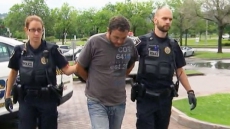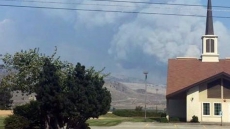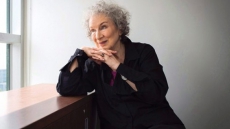VANCOUVER — A Christian university that forbids sexual intimacy outside heterosexual marriage is arguing the Law Society of British Columbia is violating the right to religious freedom of those who would graduate from its proposed law school.
Trinity Western University is asking B.C. Supreme Court to overturn the society's decision to deny accreditation to graduates due to the institution's so-called "community covenant," which prohibits sex outside of marriage between a man and a woman.
The society accredited the proposed law school in April 2014, but reversed that decision last October after a vote by its members.
The B.C. government subsequently revoked its own support, barring the school from enrolling students.
"I expect over the next week you'll hear a lot about conflict of rights," said university lawyer Kevin Boonstra in court on Monday.
"If anything ... the membership of the law society shows that if anybody's rights need protection, its religious minorities."
The judicial review, scheduled for five days, is the third time the university has fought provincial law societies in court for refusing accreditation.
The cases pit religious freedoms against same-sex equality rights, with each side arguing discrimination.
Boonstra said Trinity's covenant is central to the private university's identity as an evangelical Christian institution. Trinity enrols about 4,000 students annually and is located in the Fraser Valley community of Langley.
He said students are not screened for sexual orientation but must abide by the code of conduct.
"It asks students to make a choice. If they come, they should understand what being part of an evangelical Christian educational institution is about, to make sure they understand what they are getting into."
He said the covenant includes provisions for treating all students with respect, and there is no evidence of sexuality-based harassment within the university.
Students can be disciplined for breaking the covenant, but Boonstra said there is no specific mechanism for reporting sexual-related breaches of the code.
In its written reply, the society argued the covenant is discriminatory and runs contrary to equality rights of LGBTQ people set out in the charter. The code "seriously undermines the integrity and the foundation of the administration of justice," it said.
Earl Phillips, executive director of Trinity's law school, said the case is about whether there is room in Canada for a minority group to exercise its beliefs together. About 12 per cent of Canadians identify as evangelical Christian, he said.
"That's what we are seeking, space in Canada to live and work and study together as an authentic Christian university," Phillips said outside court.
Kendra Milne, who represents intervener West Coast LEAF, said religious freedoms can be exercised in private, but graduates called to the bar become officers of the court and have public obligations.
"I don't think anyone here is saying that Trinity Western should not be able to have a law school," she said outside court. "The issue is when we get to the public accreditation process."
The university won a similar case in Nova Scotia earlier this year, but an Ontario court upheld the Law Society of Upper Canada's refusal to accept graduates.
The Federation of Law Societies of Canada and the Alberta and Saskatchewan's bar associations have approved accreditation, while Manitoba and Saskatchewan have put decisions on hold.
The school was originally slated to open in the fall of 2016, but Phillips now expects classes to be delayed at least two years.
The case is expected to conclude in the Supreme Court of Canada.





